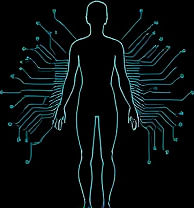The Ethics of Genomic Editing in Biohacking
 by Thaddeus Blanda
by Thaddeus Blanda
Genomic editing holds potential for transforming health optimization through precise genetic changes, yet it sparks debates on morality and safety. This piece explores key ethical issues, from consent to societal impacts, for those passionate about personal enhancement.

Genomic editing represents a significant shift in how individuals approach personal health and enhancement. This technology allows for direct modifications to DNA, offering ways to address genetic disorders and improve physical capabilities. For enthusiasts in biohacking, it opens new paths for optimization.
What Is Genomic Editing?
Genomic editing involves altering the genetic code using tools like CRISPR. These methods enable precise changes to DNA sequences, which can lead to better health outcomes. In biohacking circles, genomic editing is often seen as a tool for self-improvement, similar to nootropics that enhance cognitive function.
One key application is in treating inherited diseases. By correcting faulty genes, individuals might prevent conditions passed down through families. This ties into broader efforts for personal enhancement, where wearable technology tracks biological data to guide decisions.
Benefits and Possibilities
The advantages of genomic editing are clear in health contexts. It can potentially eliminate risks for certain illnesses, allowing people to live longer and healthier lives. For biohackers, combining this with other strategies creates comprehensive approaches to well-being.
For instance, editing genes related to metabolism could improve energy levels and physical performance. Wearable devices might then monitor these changes, providing real-time feedback. Biohacking enthusiasts value such integrations for their ability to fine-tune the body.
However, not all uses are medical. Some explore enhancements for traits like height or intelligence, raising questions about fairness and access. This highlights the need for careful consideration in personal enhancement pursuits.
Ethical Considerations
When discussing genomic editing, ethical issues come to the forefront. One major concern is the risk of unintended consequences, such as off-target effects that could harm individuals or future generations. Ethics in this area demand that changes are made with full awareness of potential downsides.
Another aspect involves equity. Not everyone has access to these technologies, which could widen existing gaps in society. For those in biohacking, ensuring that genomic editing benefits all groups is essential for responsible practice.
Consent is also critical. Individuals must understand the implications before proceeding, especially in cases involving children or inherited traits. This principle guides many in the community toward ethical decision-making.
Balancing Innovation and Responsibility
In the pursuit of health optimization, biohackers must weigh innovation against potential harms. Regulations play a role here, helping to set standards for safe practices. While some countries have strict guidelines, others are more open, allowing for experimentation.
Wearable technology can assist by providing data that informs editing decisions. For example, tracking vital signs before and after modifications helps assess effectiveness. This data-driven approach appeals to tech-savvy users seeking measurable improvements.
Communities focused on biohacking often share experiences to promote safer methods. Through forums and discussions, participants learn from one another, fostering a culture of accountability.
The Role of Science and Society
Science advances quickly in this field, with new discoveries shaping possibilities for personal enhancement. Yet, societal views influence how these tools are adopted. Public opinion can sway policies, making awareness campaigns important for ethical progress.
For wellness enthusiasts, engaging with nootropics alongside genomic editing offers a holistic view. While nootropics target the mind, genetic changes might enhance overall physiology, creating synergistic effects.
Looking ahead, continued research will refine techniques, reducing risks and expanding applications. Biohackers are encouraged to stay informed and participate in ethical dialogues.
Conclusion
Genomic editing stands as a powerful option for those dedicated to self-improvement. By addressing ethical challenges, individuals can use this technology wisely. The key lies in balancing personal gains with broader responsibilities, ensuring that advancements benefit everyone involved.
In summary, exploring genomic editing within biohacking requires thoughtfulness. With careful application, it can lead to remarkable achievements in health and enhancement, motivating a new era of informed self-optimization.
